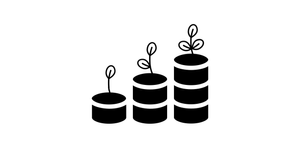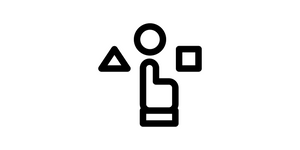Where would you be without your skills? Would you be able to support yourself and your loved ones? Would you feel a sense of accomplishment? Would you feel fulfilled at all?
Skills matter. You need to constantly learn if you want to make it in our Information Age. But how do you decide what to learn, and how do you learn it?
There are over 1 billion knowledge workers worldwide, yet we're expected to figure out on our own how to think and adapt to an ever-faster changing world. It's why productivity tools and advice are so popular. But I believe there's missing one key ingredient: knowing how to learn to change ourselves.
I believe that the intersection of productivity and learning new knowledge and skills is more important than ever. If you're a knowledge worker, you likely work in an evolving field, thus making learning a daily occurrence and a necessity.
Maybe you're not even aware that you (need to) learn constantly. I want to change that so you can take more control over your life. I want to help you build a stack of tools and techniques to learn new skills more effectively and efficiently.
Why you need to think about a learning stack
If you're a knowledge professional, what are the tools in your stack?
We all have computers, email, reading apps, and other ways to consume information. But how much of what enters your consciousness do you consume deliberately? And if you want to remember something, how do you make sure you will? That's the challenge that a learning stack aims to solve.
As technology and our jobs are changing rapidly, so are we forced to keep pace and evolve. The skills that helped you for years may now be irrelevant. And skills that didn't exist a decade ago are now essential pillars to get stuff done every day.
Just think about how Microsoft Excel is no longer a skill worth mentioning on your resumé, but knowing a programming language like R is. Things change and so should you.
Because technology makes more things possible, it's increasingly difficult to get away with doing things manually. Most of what the average knowledge worker does repeatedly can be automated, and the market is catching on. If you don't learn to leverage technology, you will at some point become irrelevant in your job.
The productivity community has been aware of the change in technology and the rise of the knowledge worker since the 1950s (think Peter Drucker and his book The Effective Executive). Yet, there's still a lot of focus on external results and tools, and less on how we actually think and learn.
In the rest of this article I'll share my story of how I came to my learning stack and how I believe we can help each other learn the meta-skill of knowing how to learn.
How I discovered my need for a learning stack
While I've always been curious about a lot—demonstrated by the fact that I always took apart gadgets as a kid—I never had a structured way of learning new things.
In high school I rarely did any homework, only showing up for projects (I do love projects). Somehow I skated by, although not excelling to the point I could.
That all changed in college.
In college I had to study for real. I was screwed as I had no idea how to learn theory and spit it out during written tests. What made it worse was that I was doing a dual degree. That meant that apart from learning how to teach, I also had to learn the language I was going to teach (Spanish). That I was in deep shit would be an understatement.
I soon realized I couldn't figure out how to learn on my own. My teachers and classmates were no real help as nobody could talk me through the process of acquiring a language and teaching it to others. So, I took to the internet.
My first priority was learning Spanish, so I felt like a kid in a candy store when I discovered the massive forum How to Learn Any Language. That forum alone helped me to think more clearly about my learning process, as thousands of passionate learners shared their experiences daily and I studied their advice.
It worked. In just three years I was pushing through plateau after plateau, making my way to near-native fluency.
And then I graduated. Time to rock! Except for...
In a country plagued by education cuts, finding a job as a Spanish teacher wasn't easy. Before I knew it, I was talking to recruiters about taking a sales job. There was just one problem: I knew nothing about sales.
I started at the bottom as a telemarketer, trying to get decision-makers of large corporations take appointments with my more senior colleagues. As expected, I was completely lost. Again. But this time I had a useful trick up my sleeve: I knew how to learn new skills.
In the nine years that followed my first miserable telemarketing attempts, I taught myself a wide range of skills. Without any background in sales, I moved from telemarketer to account manager to customer success manager, until I finally became a technical consultant.
Now I was taking things apart again, but this time I was paid handsomely for it. All thanks to my core skills: being able to look at what I want to learn, breaking it down, feeding myself the knowledge I need, and practicing to build skills that pay my bills.
But most importantly: I've had tons of fun in the past decade of my professional life.
What it means to have a learning stack
Now, this is nice and all, but how does it help you? And what does it mean to have a learning stack anyway?
Most of you will probably think of a stack as a collection of technical tools that help you get stuff done. Like a suite of apps. But that's only part of the story.
To me, a learning stack is much more than hardware and software; it's just as much about processes. No tool is going to help you if you don't know how to work with it effectively.
In short, a learning stack is the combination of tools, techniques, and your mindset to learn new knowledge—and to turn that knowledge into skills. It's just as much about having a technique to approach a new domain or skill in a structured way as it is about using technology to execute those techniques.
What do I mean by techniques and tools?
Techniques are like processes, or knowledge of how to do something. With learning techniques I mean anything that helps you pick what skills to work on next, choose the materials, dissect those materials, assimilate what's in them, and practice applying your new knowledge in a way it becomes a repeatable skill.
With tools I mean anything that supports your techniques. Learning materials in themselves are tools, but you also need a way to distill and store the most useful bits for yourself. And once you've distilled relevant knowledge, you need to have a structured way to practice and get feedback. Tools can help with all of that, but it's still you who needs to do the work using the techniques that you learned.
Without techniques, no tool is going to make you achieve your goals. And without tools, taking a systematic approach to learning becomes much more difficult. The trick is to balance the two while focusing on your wanted outcome—without constantly fiddling with your tools and techniques.
How can I help you build a learning stack?
Struggling for years to learn new skills—both in college and my professional life—I know the pain of not knowing what to do. I've seen it repeatedly in my corporate jobs, and seeing others suffer in their jobs pained me just as much.
Since I quit my corporate job last year, I've been helping hundreds of professionals think more clearly about their work and needed skill set. In the process, I've gained important insights into the nature of learning and applying skills. Slowly, I've been uncovering what helps most people and what causes us to spin our wheels. Now, I want to help people at scale.
In the coming weeks I'll be publishing a series of articles that will help you think about your own skill set and where you want it to grow. I'll also be organizing several workshops to help you make sense of the ideas and apply them to your own context. Both will be available to RoamStack members.
So what can you expect? Think content about:
- How to pick what skill to learn next;
- How to dissect skills so you know what to focus on first;
- How to pick materials that will help accelerate your learning pace;
- How to plan for learning sessions and focus during them;
- How to work with your learning materials and make sure what you learn sticks;
- How to turn knowledge into skills through deliberate practice;
- Any other things that comes along the way as I speak with you during office hours and workshops.
If you're not a member yet, sign up below for just €9 per month or €99 per year. You'll be receiving a weekly dose of distilled wisdom together with premium content, and have direct access to me for all of your questions about skill acquisition and the digital tools that will help you in the process.




